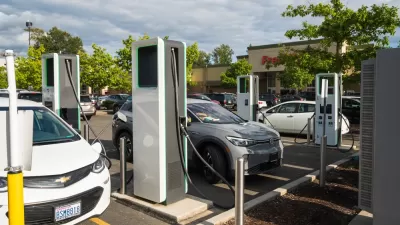A new MIT study finds that transitioning residential heating from natural gas to electric heat pumps can significantly reduce carbon emissions and operational costs.

A recent MIT study highlights the potential benefits of transitioning residential heating from natural gas to electric heat pumps. This shift could significantly reduce carbon emissions and operational costs across both the electric power and natural gas sectors. The research underscores the importance of electrifying buildings, especially in colder regions where heating demands are substantial, as a crucial step toward decarbonizing the U.S. energy system.
As reported by Nancy W. Stauffer, the study utilized a comprehensive modeling framework to assess the impacts of various levels of residential heating electrification. Findings indicate that increased electricity demand from heat pumps can be managed effectively by the power sector, leading to net reductions in overall emissions. Simultaneously, the natural gas sector could experience decreased demand, resulting in lower operational costs and emissions.
Implementing this transition requires careful planning to address challenges such as infrastructure investments and grid reliability. However, the study suggests that with strategic coordination between the electric and natural gas industries, electrifying residential heating presents a viable pathway to achieving significant environmental and economic benefits.
FULL STORY: Reducing carbon emissions from residential heating: A pathway forward

Maui's Vacation Rental Debate Turns Ugly
Verbal attacks, misinformation campaigns and fistfights plague a high-stakes debate to convert thousands of vacation rentals into long-term housing.

Planetizen Federal Action Tracker
A weekly monitor of how Trump’s orders and actions are impacting planners and planning in America.

In Urban Planning, AI Prompting Could be the New Design Thinking
Creativity has long been key to great urban design. What if we see AI as our new creative partner?

King County Supportive Housing Program Offers Hope for Unhoused Residents
The county is taking a ‘Housing First’ approach that prioritizes getting people into housing, then offering wraparound supportive services.

Researchers Use AI to Get Clearer Picture of US Housing
Analysts are using artificial intelligence to supercharge their research by allowing them to comb through data faster. Though these AI tools can be error prone, they save time and housing researchers are optimistic about the future.

Making Shared Micromobility More Inclusive
Cities and shared mobility system operators can do more to include people with disabilities in planning and operations, per a new report.
Urban Design for Planners 1: Software Tools
This six-course series explores essential urban design concepts using open source software and equips planners with the tools they need to participate fully in the urban design process.
Planning for Universal Design
Learn the tools for implementing Universal Design in planning regulations.
planning NEXT
Appalachian Highlands Housing Partners
Mpact (founded as Rail~Volution)
City of Camden Redevelopment Agency
City of Astoria
City of Portland
City of Laramie





























